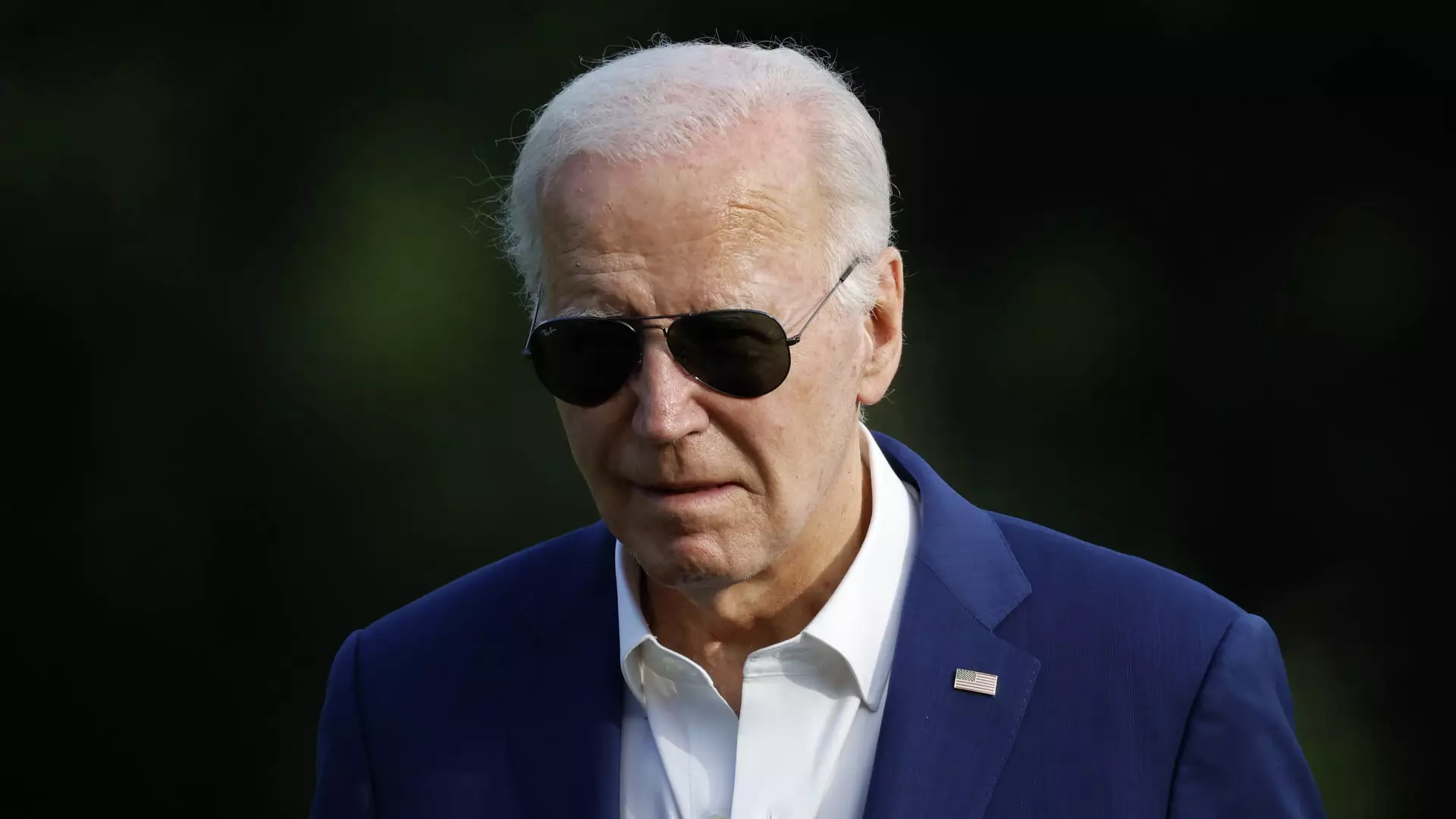On a pivotal Tuesday, House Democrats gathered at their national party headquarters in Washington, signaling a moment of reckoning for the party as its members grapple with the future of President Joe Biden’s reelection campaign. The closed-door meeting was characterized by an atmosphere thick with apprehension, as lawmakers were deprived of their phones, truncating any external communication. This session was not only significant for its timing but also for its implications, coming as it did on the heels of a fraught debate performance by Biden against former President Donald Trump. The aftermath of that June debate propelled the party into crisis mode, prompting a reevaluation of their support for Biden’s candidacy.
As members emerged from the meeting, their reluctance to engage with the media spoke volumes. Representative Mike Quigley of Illinois summed up the general sentiment, stating, “I promised I wouldn’t talk at all about what was said,” further emphasizing the sensitive nature of their discussions. The silence among many members was noticeable, with only scattered comments filtering through, revealing a split among party members regarding the direction of their campaign.
The pressure on Biden intensified during this meeting as voices within the caucus questioned his viability as a candidate. Reports highlighted that some lawmakers openly suggested that the President should withdraw from the race. Representative Steve Cohen from Tennessee echoed this sentiment, revealing the depth of concern within the party. While Cohen’s spokesperson did not confirm his comments directly, the implications were clear: a faction of the Democratic Party is increasingly worried about Biden’s ability to secure victory in the 2024 presidential race.
Adding complexity to this situation, high-profile Democrats, including Jerry Nadler of New Jersey, who initially expressed doubts, shifted back to a position of support. “I’m fully supportive of him. I plan to campaign for him. And it’s essential that he wins,” Nadler stated, reflecting the conflicted loyalties that many party members feel as they try to balance their own concerns with the need to unite behind a candidate.
Despite the chorus of criticism and calls for a change at the top, President Biden remains resolute. He insists that he is the most qualified candidate to face Trump in the upcoming election. Biden’s steadfastness comes as he seeks to galvanize support from vital demographics within the party, particularly the Congressional Black Caucus and the Congressional Hispanic Caucus. Leaders from these groups, such as Nanette Barragan, conveyed their commitment to backing Biden, characterizing the caucus meeting as an opportunity for internal dialogue, albeit one that respects privacy.
This notable division within the party raises questions about the overall strategic direction heading into a critical election year. Democratic leaders, while expressing their support for the Biden-Harris ticket, find themselves entangled in a delicate balancing act, navigating the demands of vocal dissenters and party unity.
Amid these internal struggles, external pressures are mounting as well. A handful of demonstrators, representing the National Republican Campaign Committee, gathered outside the Democratic National Committee with provocative signs questioning Biden’s fitness for office. This public dissent underscores the broader narrative that the Democratic Party must contend with—one shaped by partisan polarization and a skeptical electorate.
As the weeks lead into Election Day, the Democratic Party faces an uphill battle in rallying behind a candidate whose age and performance have drawn scrutiny. The ongoing discussions within the party reflect not just an internal strife, but also a broader concern about the Democratic platform and candidate viability in a landscape dominated by a hostile Republican opposition.
As the election cycle progresses, the path forward for Biden and the Democratic Party remains fraught with uncertainty. The caucus meeting was more than just an internal discussion; it was a reflection of a party at a crossroads, weighing the necessity of unity against the reality of diverging opinions on leadership. With the clock ticking toward November, Democratic leaders must find a way to not only confront their fears about Biden’s candidacy but also to catalyze a united front to face the challenges that lie ahead. The subsequent weeks will prove crucial as the party attempts to reconcile its differences and reclaim a sense of direction before the pivotal election.


Leave a Reply